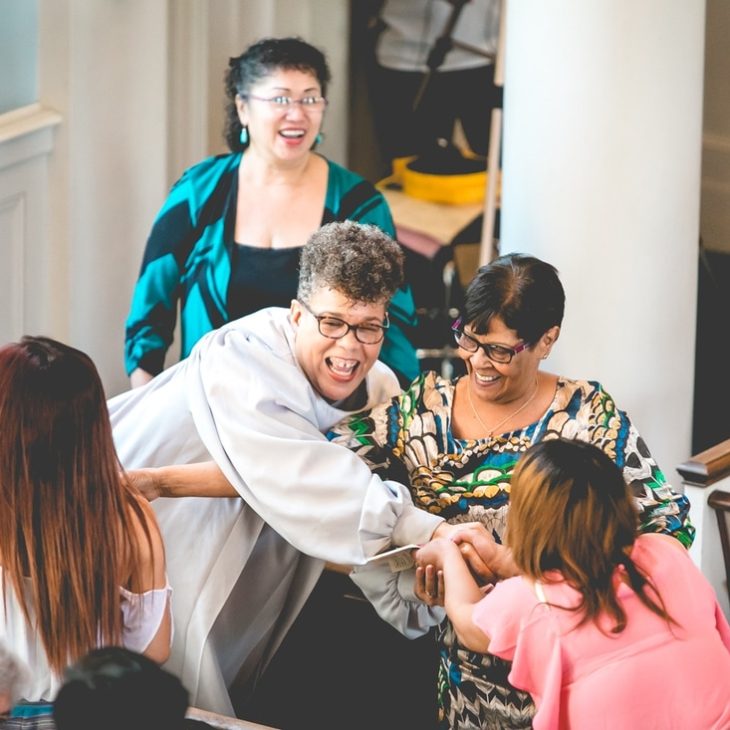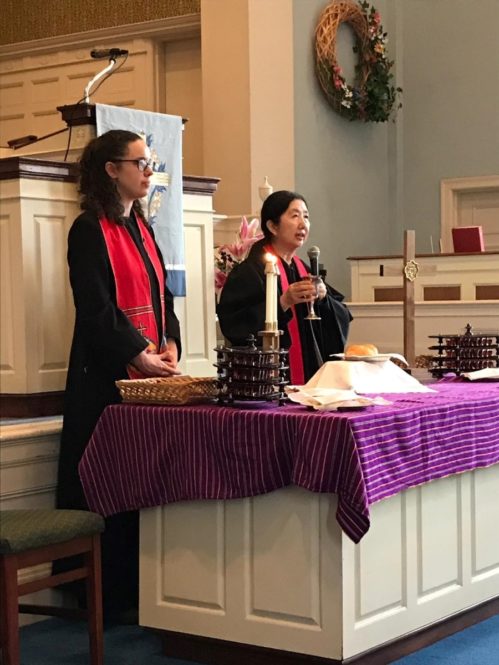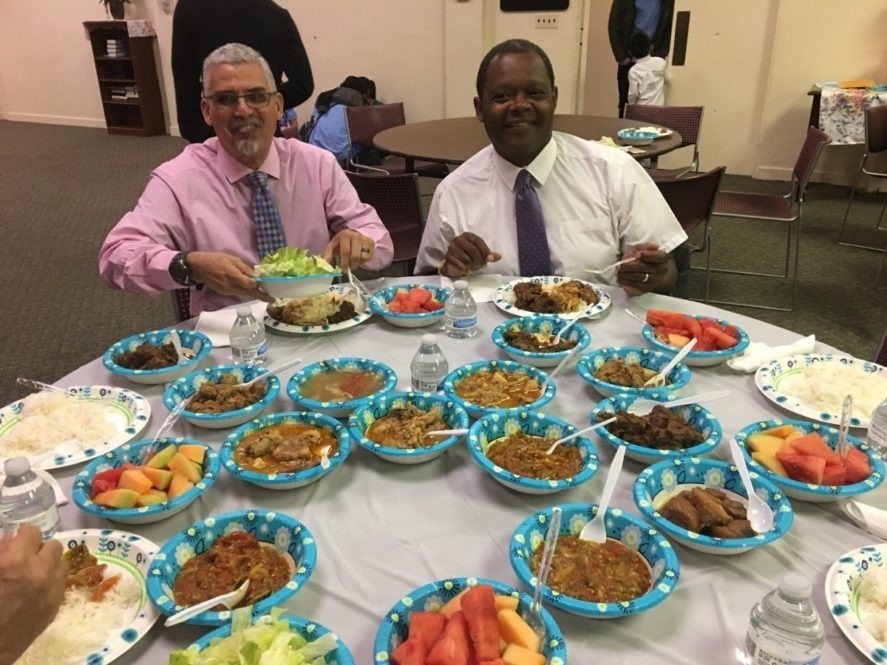A Christian Conversation On Laborers Day
September 4, 2020

God loves your labor and loathes the exploitation of that labor. For Christians, the source of that exploitation is sin – estrangement from God and from one another. Cycles of exploitation and liberation are as old as Adam and Eve, and to rectify the imbalance of exploitation takes work. That is holy work.
While countries around the world honor workers on May 1 (commonly played down in the US despite its Chicago origins), the US has set aside the first Monday in September to honor workers, a federal holiday known as Labor Day. The holiday was established by labor unions in the late 19th century. This year to honor Labor Day, I sat down with the pastoral team at Chicago’s North Shore Baptist Church who together serve four language congregations (English, Japanese, Sgaw Karen, Spanish) in order to consider the Christian conception of labor and laborers.
“Adam was working, Eve was working too,” Pastor Juan Angel Gutierrez started. “Side by side,” Pastor Michael Ware added. Juan continued, “What happened was the relationship with work changed after sin.”
Pastors Juan and Michael began their paid labor at the same age – 8 – Juan shining shoes in his hometown in Puerto Rico and Michael picking fruit in the fields outside of Benton Harbor, MI.
Share
Related Articles
American Civic Life
We Commemorate, We Commit: Out of Catastrophe, a Conversation on Connection and Repair
American Civic Life
Racial Equity
A Year After George Floyd’s Murder: How Black Interfaith Can Give Hope to America
“I don’t like to talk about work or labor, I like to think about workers and laborers,” Pastor Juan says. “Work is a philosophical, sociological idea. When you talk about laborers and workers you are talking about people. This is not about a concept, it is about real people.”
“I don’t like to talk about work or labor, I like to think about workers and laborers,” Pastor Juan says. “Work is a philosophical, sociological idea. When you talk about laborers and workers you are talking about people. This is not about a concept, it is about real people.”
Juan is proud that his work with construction and domestic labor unions in New York City helped to establish a living wage and mandatory safety equipment. He is quick to emphasize the years and thousands of organizers and workers whose efforts achieved those securities.
“Work is always a collective issue, it’s something we do together. That’s something I feel the United States society has forgotten. Everybody believes that this is my work and that’s not true. There is no work that someone does alone. … We have discovered that in Covid-19, people who we thought were not worthy at all have become the more important people within our society.”
Pastor Michael notes that the themes of labor are later picked up in the stories of Joseph and Moses. ”Again sin steps in and they become dissonant with one another…and remember, it was an agrarian society, it was hard work.”
“There were a lot of construction workers,” Juan adds. “Farmer workers, like we do have right now, and construction workers, like we do have right now. The people who got liberated from Egypt were workers, workers who were oppressed by the system, and we tend to forget that because of the way that it is taught.”
“It is clear in the Bible that God is opposed to exploitation and oppression. We can see God’s disgust toward exploitation in the Book of Jeremiah, Amos, etc,” notes Pastor Yuki Scroggins.
“The Jubilee tradition has been on my mind a lot,” shares Pastor Kathryn Ray. “Within that tradition, you free any indentured laborers that you have and you send them away with goods, you furnish them for starting a new life. You forgive any debts that have been accrued. And there’s a sense that society has a tendency, even there – it’s not a capitalist society – has a tendency toward injustice, toward imbalance. And you have to have a mechanism for righting that imbalance so you don’t spiral into deeper sin. …. And that applies in economic systems and labor as much as in sin and people’s relationship with God.” Kathryn notes that her scriptural reference (Deuteronomy 15:12-18) is what Ta-Nehisi Coates uses to open his argument in the case for reparations.
Kathryn reminds Juan of something he shared in a recent Bible Study with a text from Biblical scholar AJ Levine, exploring the story of the Laborers in the Vineyard, “why didn’t the laborers advocate for each other? You talked about how difficult it was to get day laborers to advocate for one another. Moving forward that sense of collectivity and relying on one another and advocating for one another is a challenge in our context but an important one.”
“We have put so much emphasis that salvation is individual that we have lost one of the core parts of the Gospel, that we are together in this,” Juan shares. “We go to heaven together or we go to hell together. … We have to start to change the narrative in the church, especially in the Baptist church because our principles and our history are very collective. We can be good together. We are not good when we are not together.”

Two female pastors, Kathryn Ray and Yuki Scroggins, stand in front of an altar with bread and grape juice in preparation for Communion.

Two male pastors, Juan Angel Gutierrez and Michael Ware smile sitting down to a table full of food. Images provided by Becca Hartman-Pickerill.



